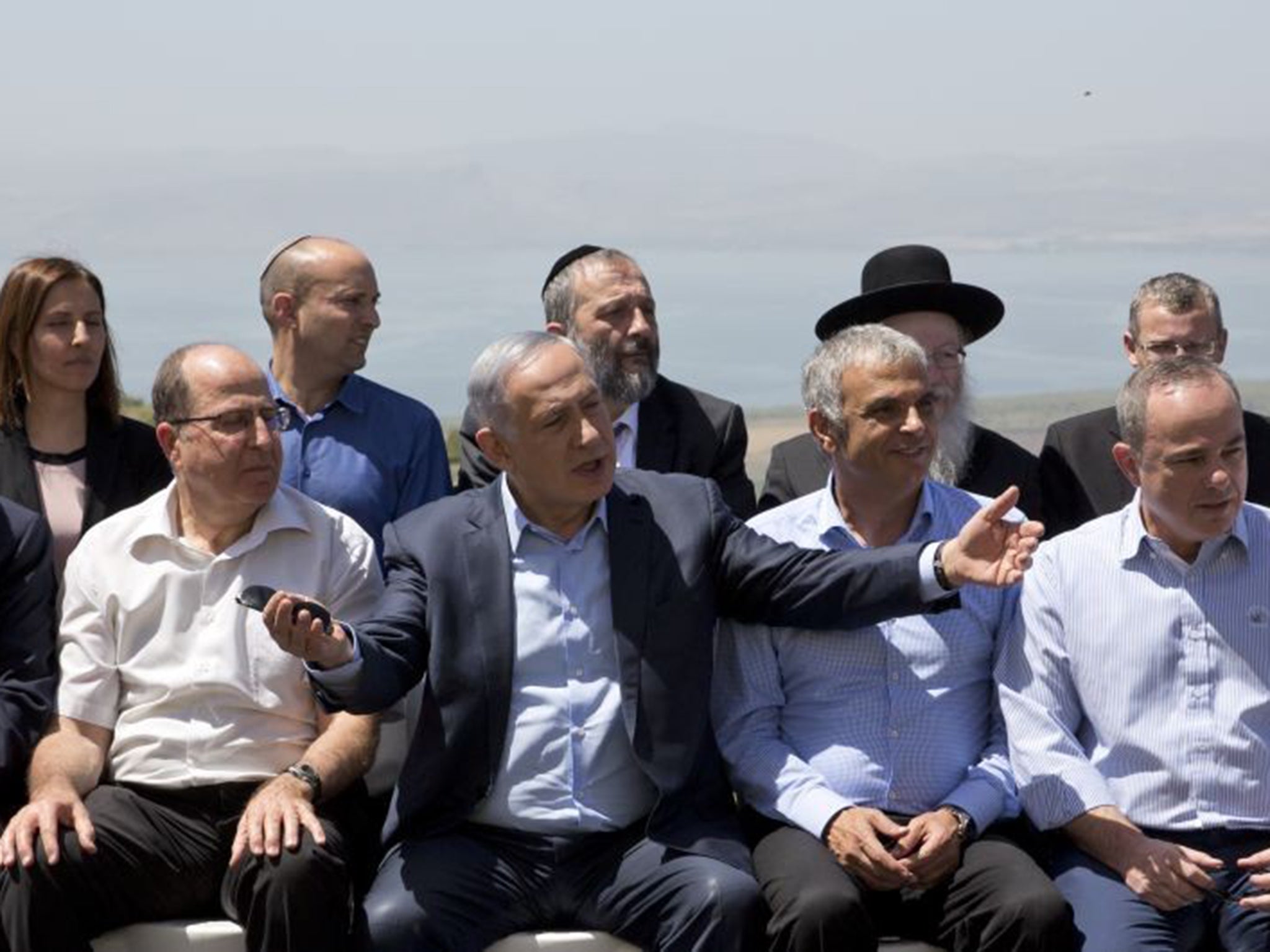Israel will never give up Golan Heights, Benjamin Netanyahu vows
Israeli leader says ‘time has come for international community to face reality’ over disputed region

Your support helps us to tell the story
From reproductive rights to climate change to Big Tech, The Independent is on the ground when the story is developing. Whether it's investigating the financials of Elon Musk's pro-Trump PAC or producing our latest documentary, 'The A Word', which shines a light on the American women fighting for reproductive rights, we know how important it is to parse out the facts from the messaging.
At such a critical moment in US history, we need reporters on the ground. Your donation allows us to keep sending journalists to speak to both sides of the story.
The Independent is trusted by Americans across the entire political spectrum. And unlike many other quality news outlets, we choose not to lock Americans out of our reporting and analysis with paywalls. We believe quality journalism should be available to everyone, paid for by those who can afford it.
Your support makes all the difference.The Golan Heights will remain part of Israel, Prime Minister Benjamin Netanyahu has declared during the first ever cabinet meeting held on the Golan issue.
Mr Netanyahu used the meeting to call on the world to recognise Israeli sovereignty over the territory.
“I decided to hold this meeting on the Golan Heights to send a clear message. The Golan Heights will always stay in Israeli hands. Israel will never leave the Golan Heights,” he said.
The mountainous plateau was occupied by Syria up until 1967, when it was captured by Israel. Israel effectively annexed the territory in 1981, however the move was unanimously rejected by the UN Security Council that same year and has not been recognised internationally.
“The time has come after 40 years for the international community to finally recognise that the Golan Heights will remain forever under Israeli sovereignty,” Mr Netanyahu said at the meeting.
He added that whatever the outcome of the peace talks that is currently underway in Geneva over the conflict in Syria, the border will not change. The area is strategically important to Israel’s border security.
The remarks drew condemnation from Syria, which lays claim to the territory under international law.
Syria's Foreign Ministry lodged complaints with the UN Secretary General and Security Council over the Cabinet meeting, calling it “reckless” and “provocative.” It called on the international community to push Israel out of what it called the, “occupied Syrian Golan.”
Syria’s Deputy Foreign Minister, Faisal Mekdad, said Syria would reclaim the Golan Heights, even if force was necessary.
“All options are on the table for getting back the occupied territory from Israel,” he said, according to The Times of Israel.
“We are prepared to do anything in order to return the Golan to the Syrian motherland, including using military force,” he added.
On Monday, Germany said that a decision by Israel to keep the Golan Heights would breach international law.
German Foreign Ministry spokesman Martin Schaefer said: “It's a basic principle of international law and the UN charter that no state can claim the right to annex another state's territory just like that.”
Mr Schaefer said Germany isn't currently demanding the immediate return of the territory due to the security situation in Syria.
Mr Netanyahu met with US Secretary of state, John Kerry, on Saturday and warned him Israel was not opposed to peace in Syria. But said he did not want it to come “at the cost of Israeli security”.
“For the 19 years that the Golan was under Syrian occupation, it served as a place for bunkers, barbed wires, mines and aggression – it was used for war.
“In the 49 years that the Golan is under Israeli control, it was used for agriculture, economic initiatives, building – it was used for peace,” Mr Netanyahu said.
The region is home to more than 30 Jewish settlements. There are around 20,000 Syrians in the area, which most are members of the Druze sect.
Join our commenting forum
Join thought-provoking conversations, follow other Independent readers and see their replies
Comments